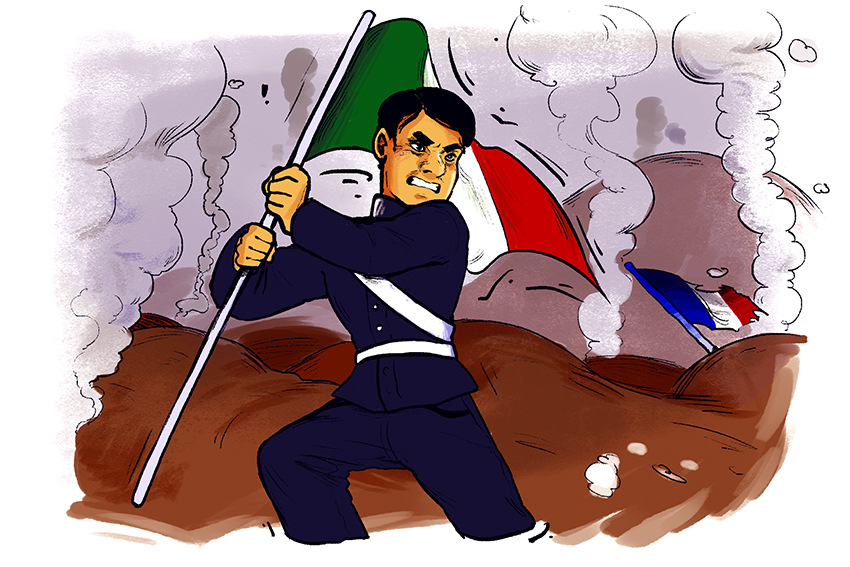To those unfamiliar with the holiday, Cinco de Mayo is something of a mystery clouded by misappropriated advertisements and corporate sponsorships. To provide some clarity for those who are not clear on the intricacies of Cinco de Mayo, The Daily Texan spoke with faculty experts and students who personally celebrate the holiday.
Cinco de Mayo, or the fifth of May, is an annual celebration of the Mexican military victory over the French at the Battle of Puebla. Many end up confusing the holiday with Dieciséis de Septiembre, the anniversary of Mexican independence.
John Moran Gonzalez, the director of the Center for Mexican-American Studies, said the holiday is celebrated more in the U.S. than in Mexico because of active participation of people — who would today be referred to as Mexican-American — in the Battle of Puebla.
“In fact, the lead general, Ignacio Zaragoza, was born in Texas,” Gonzalez said. “So he and other Tejanos who fought there very much brought the celebration to the United States. But I think more importantly, it was a battle that was a complete surprise victory for the Mexican side.”
A triumphant expression of what Gonzalez called the “underdog spirit” of Mexican-Americans, who were victorious in the battle, the initial version of Cinco de Mayo celebrated the battle itself but grew to be a much broader festivity which celebrates Mexican-American culture.
“They’ve shifted from what had been largely community-organized and focused events to corporate sponsored parties,” Gonzalez said. “Especially with the sponsorship of liquor and beer, this whole ‘Drinko de Mayo’ thing, it’s not about that. That’s a commercialization and a defamation of the original purpose of the celebration.”
Laura Gutierrez, the Department of Mexican-American and Latina/o Studies chair, has witnessed Cinco de Mayo on both sides of the border. She said it is not an official holiday in Mexico as it is in the U.S., but the defeat of the French is celebrated with a parade through her small town. However, she has noticed a marked difference in the way heritages are celebrated in the U.S.
“It’s a day when people are given the license to drink in excess, much like Saint Patrick’s Day,” Gutierrez said. “I’m not lamenting that these holidays have lost their true meaning, as I don’t believe in anything having a true meaning, it’s all socially and culturally constructed. But what is true is that cultural heritages are used as an excuse for beer companies to cash in — it is truly appalling.”
Nursing sophomore Armando Medina said he celebrates Cinco de Mayo with his family and friends at home in the Rio Grande Valley of southern Texas. He said his family enjoys playing lotería, a game similar to bingo, as well as barbecuing and simply enjoying each other’s company.
Medina said he experienced conflict when he thought about Cinco de Mayo and the way it is popularly celebrated as a result of what he described as the assimilation of Mexican-Americans into American culture.
“We kind of just do really commercialized stuff,” Medina said. “In high school back home, we celebrated it for the colorful flowers, the food, Mexican beers and tequila. I personally will probably celebrate Cinco de Mayo and I’m not focusing on the historical context, so I don’t really have a frustration with that because it’s part of the assimilation process.”
Despite the heavy commercialism and lack of education which dominates Cinco de Mayo, Gonzalez said he believes there is opportunity to maintain the historical context of the holiday while still enjoying oneself in a respectful and mindful manner to protect the true importance of the day.
“It’s about celebrating survival,” Gonzalez said. “The Spanish word ‘sobrevivir,’ it means to survive, but it also suggests to go beyond just surviving, to thriving. It’s a reminder that despite what appears to be overwhelming odds, there is always this space for hope for a better day.”





















